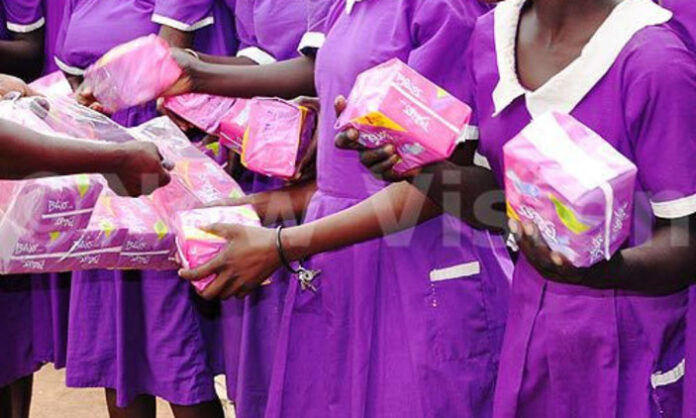
The Association of Ghana Industries (AGI) has served government caution to desist from any policy attempts to scrap import duties and levies on imported sanitary pads into the country.
It argues that though there has been incessant demands from the public in that regard, when heeded will culminate into collapse of the only few local manufacturing industries left.
The association in a statement signed by its Chief Executive Officer, Seth Twum Akwaboah therefore urged government to alternatively make available incentives to local manufacturers by removing taxes on imported raw materials to scale up production in order to mitigate the cost thereby making the product more affordable to most especially the impoverished in society.
“Instead of removal of import duties, local manufacturers of hygienic sanitary pads have since petitioned Government for exemption from VAT and Import duty on their imported raw materials to make such products more affordable. Currently, medical supplies, services, essential drugs as listed under Chapter 30 of the ‘HS Code’ produced or supplied by retail in Ghana, specified active ingredients for essential drugs, and selected imported special drugs determined by the Minister for Health and approved by Parliament enjoy exempt regime.
“It is only fair to extend same dispensation to the raw material for sanitary pads for our young women. Our local manufacturers believe their sanitary pads will be more affordable to an estimated 70% of our young women in impoverished communities if granted such tax reliefs on raw materials.”
Below is the full statement.
PRESS STATEMENT
AGI CAUTIONS GOVERNMENT ON REMOVAL OF TAXES ON IMPORTED SANITARY
PADS
The Association of Ghana Industries (AGI) wishes to caution Government that any policy measure that seeks to remove taxes on imported sanitary pads, at the expense of local manufacturers of same will be very detrimental to our economy. Much as the waiver of duties/taxes on imported sanitary pads for our young women to make the pads more affordable may sound good, this will only end up completely wiping out the few local sanitary pad factories left in our country. Therefore, the Association is of the view that the call for the removal of duties on imported sanitary pads is misplaced.
Our local manufacturers of sanitary pads and diapers have been under pressure from cheap and sub-standard imports which sell at closeout. The few sanitary pad manufacturers with capacity to expand are only producing at about 30% capacity on account of the influx of such imports. Some of the factories are already out of business and have sent workers home. To further eliminate taxes on such imports will certainly collapse the few factories left or compel them to fold up and become mere importers. Our young women deserve affordable sanitary pads but granting tax waivers on imported sanitary pads is not the way to go. With the right incentives and support, these local companies can meet domestic demand, saving the country jobs and forex.
Instead of removal of import duties, local manufacturers of hygienic sanitary pads have since petitioned Government for exemption from VAT and Import duty on their imported raw materials to make such products more affordable. Currently, medical supplies, services, essential drugs as listed under Chapter 30 of the ‘HS Code’ produced or supplied by retail in Ghana, specified active ingredients for essential drugs, and selected imported special drugs determined by the Minister for Health and approved by Parliament enjoy exempt regime. It is only fair to extend same dispensation to the raw material for sanitary pads for our young
women. Our local manufacturers believe their sanitary pads will be more affordable to an estimated 70% of our young women in impoverished communities if granted such tax reliefs on raw materials.
The public discourse and social commentary suggesting to Government to eliminate import duty on imported sanitary pads need circumspection and ought to be reconsidered vis-à-vis local manufacturing, job creation and revenue generation for Government.
The few local manufacturers of sanitary pads face imminent collapse and AGI calls on Government to intervene as soon as possible. We caution Government not to play to the gallery, but rather stay focused on its industrial transformation agenda by incentivising local manufacturers rather than imports.
While a number of countries adopt countervailing taxes to “protect” their local markets, it will be unfortunate for Ghana to do the reverse by eliminating taxes on such imports to make them cheaper, especially where there are factories in Ghana producing same items.
We are anxious to see more policy prescriptions that attract investments, create jobs and can transform the structure of our economy from an import to export oriented one. This may sound long-term, but it is of necessity and it is achievable.
Signed: Seth Twum-Akwaboah
Chief Executive Officer
For and on behalf of Association of Ghana Industries
If you need further information, please contact the Chief Executive Officer on 0302-251266
Website: www.agighana.org
June 21, 202




